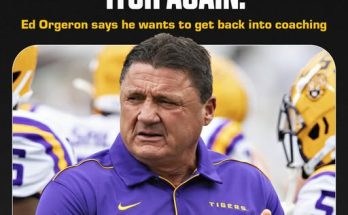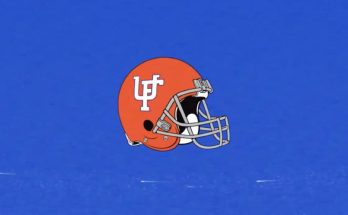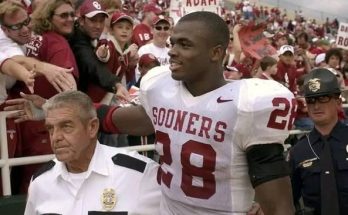College Football Quarterbacks Can Learn from Jalen Hurts’ Bumpy Road to Super Bowl Champion
Jalen Hurts’ journey to becoming a Super Bowl champion quarterback with the Philadelphia Eagles is one filled with challenges, setbacks, and ultimately, redemption. For many young quarterbacks in college football, Hurts’ path can serve as a valuable lesson in perseverance, resilience, and the importance of trusting the process. His rise from a highly-touted recruit to a second-round draft pick, to a Super Bowl contender, is a testament to the power of hard work, self-belief, and the willingness to adapt when necessary.
A Rocky Start at Alabama
Jalen Hurts’ story began in the college football spotlight at the University of Alabama, where he was thrust into the starting quarterback position as a true freshman. Hurts immediately impressed with his athleticism, poise, and leadership, leading Alabama to a national championship game in his freshman season. He seemed like the next great quarterback to continue Alabama’s dominance under Nick Saban.
However, despite Hurts’ success on the field, his development was far from flawless. His freshman year, while impressive, also exposed some limitations in his game, particularly with his passing accuracy and consistency as a passer. He relied heavily on his legs and his ability to extend plays with his mobility, but his passing game remained a work in progress. Hurts had the physical tools, but his struggles in the passing game became evident in key moments, especially during Alabama’s 2017 national championship loss to Clemson.
The following year, Hurts was still the starter, but his shortcomings as a passer were amplified. Alabama had the nation’s best defense and a strong supporting cast, but Hurts’ inability to consistently push the ball down the field or read defenses properly led to frustrations. Many started questioning whether Hurts had the ability to lead Alabama to a national championship.
The Arrival of Tua Tagovailoa and a Defining Moment
Hurts’ situation at Alabama took a dramatic turn in the 2018 College Football Playoff National Championship. After struggling in the first half against Georgia, Nick Saban made the decision to bench Hurts and insert freshman quarterback Tua Tagovailoa. Tagovailoa led Alabama to an incredible comeback victory, and the freshman’s performance sparked a quarterback controversy that would haunt Hurts throughout the rest of his time in Tuscaloosa.
For many quarterbacks in Hurts’ position, this could have been a crushing blow. Hurts had just been benched in the biggest game of his career, and many wondered if he would ever regain his starting role. In an era where transfers are more common than ever, Hurts could have easily looked for a new opportunity to continue his career. But instead of transferring immediately, Hurts chose to stick with Alabama and compete for his job back.
His time on the bench was difficult, but it taught him an important lesson: humility and the ability to learn from his mistakes. Hurts spent the following offseason working on his mechanics, improving his passing accuracy, and expanding his knowledge of the game. He was determined to show that he could be a complete quarterback, not just a dual-threat.
The Transfer to Oklahoma and a New Beginning
After another season of playing behind Tua, Hurts made the decision to transfer to the University of Oklahoma for his senior year. This move was initially seen as a gamble by some, as he was leaving a powerhouse program like Alabama for a school that had a reputation for producing high-flying offenses but was not as dominant on the national stage.
However, the decision to transfer to Oklahoma turned out to be the best choice of Hurts’ career. In Norman, Hurts was given the opportunity to showcase his talents in a new offensive system under head coach Lincoln Riley, a coach known for developing quarterbacks. Hurts was able to thrive in the up-tempo, pass-heavy offense at Oklahoma, further developing his skills as a passer and proving that he was capable of running a sophisticated passing attack.
Hurts’ year at Oklahoma was nothing short of spectacular. He led the Sooners to a Big 12 title, threw for over 3,800 yards, and accounted for 53 total touchdowns. He finished second in the Heisman Trophy voting, a testament to his growth as a player and his ability to adapt his game. It was also a validation of Hurts’ decision to continue working on his game and embrace the challenge of reinventing himself as a more complete quarterback.
NFL Draft and the Philadelphia Eagles
Despite Hurts’ remarkable turnaround at Oklahoma, some analysts still doubted whether he had the skills to succeed at the next level. Many questioned whether his game would translate to the NFL and whether he could develop into a top-tier quarterback. When the Philadelphia Eagles selected Hurts in the second round of the 2020 NFL Draft, it was a surprising move for many, especially with the team having just committed to quarterback Carson Wentz with a lucrative contract.
However, Hurts’ selection by the Eagles would prove to be a pivotal moment in his career. He was drafted into a situation where he could learn from veteran quarterbacks and take his time to develop. Hurts would eventually take over the starting role in 2021, but his early years in Philadelphia were filled with growing pains and challenges.
Year 1: Learning the Ropes
Hurts’ first season as the Eagles’ starting quarterback in 2021 was a rollercoaster ride. He showed flashes of brilliance with his ability to extend plays and make things happen with his legs, but his passing game still needed work. Hurts was also leading a team that was in the midst of rebuilding, so consistency was difficult to find. The Eagles made the playoffs, but Hurts’ development was still very much a work in progress.
Despite the ups and downs, Hurts never wavered in his commitment to improving. He spent the offseason working tirelessly on his mechanics, footwork, and decision-making, fully aware that the NFL was a different level than anything he had experienced before. He knew that the road to greatness would require him to refine every aspect of his game.
Year 2: Breakthrough and Super Bowl Contender
Fast forward to 2022, and Hurts had become one of the most improved quarterbacks in the NFL. Under the guidance of head coach Nick Sirianni, Hurts took his game to another level. His passing accuracy improved dramatically, his decision-making became more consistent, and his leadership qualities were more evident than ever before. With a revamped offensive line, an explosive receiving corps, and a strong defense, Hurts led the Eagles to an impressive regular-season record and an appearance in the Super Bowl.
Hurts’ performance in the Super Bowl against the Kansas City Chiefs was a defining moment in his career. Despite a valiant effort, the Eagles ultimately fell short, but Hurts’ performance was nothing short of spectacular. He threw for 304 yards, ran for three touchdowns, and demonstrated poise and resilience in one of the most high-pressure games in sports. Hurts showed that he had not only developed into a top-tier NFL quarterback, but he had the mental toughness and leadership qualities needed to perform at the highest level.
What College Quarterbacks Can Learn from Jalen Hurts
Jalen Hurts’ path to the Super Bowl is a story of resilience, adaptability, and growth. College football quarterbacks can learn several valuable lessons from his journey:
1. Embrace Setbacks and Learn from Them
Hurts’ time at Alabama wasn’t easy. He was benched in the biggest game of his career, but instead of sulking or transferring immediately, he embraced the challenge. College quarterbacks who face adversity should learn from Hurts’ example: setbacks don’t define you, but how you respond to them does. Hurts grew stronger and more determined after every setback, making him a better quarterback in the long run.
2. Be Willing to Adapt
When Hurts transferred to Oklahoma, he was making a decision to reinvent himself as a quarterback. He didn’t rely solely on his legs but developed a more complete skill set as a passer. College quarterbacks should be willing to adapt and work on their weaknesses, whether that’s improving their mechanics, reading defenses, or developing more consistency with their throws.
3. Believe in the Process
Hurts’ journey to the NFL was not linear. He faced doubts, criticism, and even competition from Carson Wentz. Yet, Hurts continued to believe in himself and the process. He worked tirelessly to improve his game, and over time, that hard work paid off. College quarterbacks need to understand that success doesn’t happen overnight. It’s about trusting the process, putting in the work, and being patient as they develop.
4. Focus on Continuous Improvement
The one thing that has defined Hurts’ career is his commitment to continuous improvement. Whether it was after his time at Alabama or during his first years in the NFL, Hurts always worked on his game. College quarterbacks should take note: if you want to reach the next level, you can never stop improving. Every offseason is an opportunity to become a better version of yourself.



